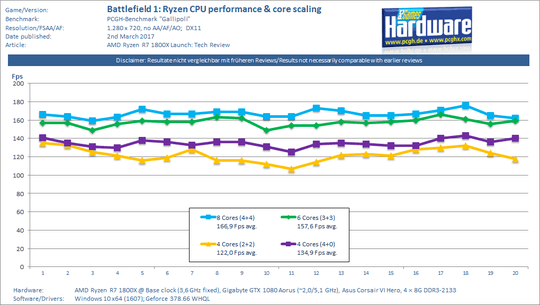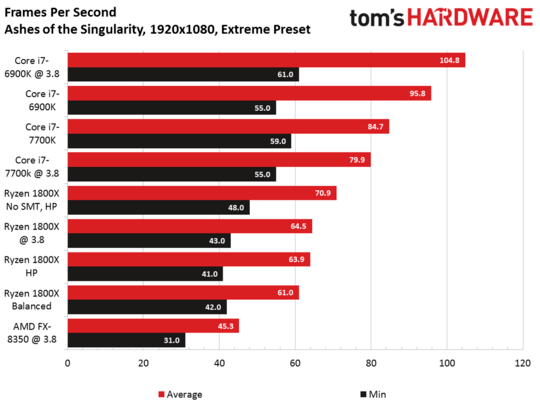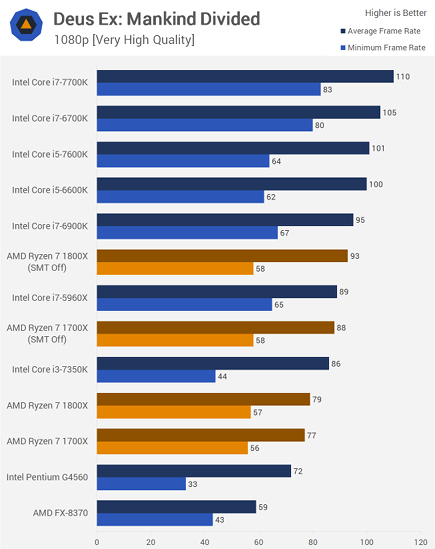It's not so much that software updates will make the processor faster. What everyone is expecting is that software updates will make the software more suitable for Ryzen's architecture, and able to better leverage its performance.
Correct me if I'm wrong but the processor must have a static firmware to be compatible to the x64 standard?
Almost. There is software in the CPU (microcode, as mentioned above) and it can influence performance. Basically X86 only specifies the results of operations, how exactly the CPU achieves those results is the engineers' problem. The odds of microcode tweaks playing a major role with Ryzen are slim though, as the performance gap seems to apply mostly to games which suggests the CPU performs well, but some games in particular don't leverage it well.
The Operating System is responsible for trying to make sure programs are spread across the CPU efficiently, which can impact performance, but broadly speaking neither of these factors are the main problem for a new architecture. Most performance improvements in cases like this come as a result of developers writing code better suited to the new architecture. This tends not to happen between generations of Intel CPU as the design changes aren't tremendously significant, so what works well on one will likely work well on another.
Ryzen however is a ground up new design, so everything that's been written to suit other CPUs by definition hasn't been written to suit Ryzen.
To massively oversimplify the situation, picture two processors:
Processor One has been on the market a while, and is (for whatever reason) very very quick at adding numbers. Software is designed to try and use addition as much as possible, to take advantage of this ability.
A competing processor lands on the market and is weaker at addition, but stronger at multiplication. All of the software optimised to use more addition-heavy instructions performs badly on the new processor, but software that hasn't been tailored to use lots addition performs more or less similarly. Some software may already do lots of multiplication, and will do better on the new CPUs than they would on Processor One, even on launch day.
Some time after launch, developers will start to adapt, using more multiplication in their software, or even design their software to switch between addition-heavy code paths, and multiplication-heavy ones depending on which CPU architecture is being used.
This is kind of what's happening with Ryzen - it's a new architecture that software developers haven't optimised to suit the characteristics of yet. Given time, developers will start tweaking their software to perform better on it. As most software is already designed to perform well on Intel CPUs (they are quite popular, after all!), they likely aren't going to benefit from these changes very much.
There are some workloads that Intel will simply remain faster at, and some that Ryzen is already faster at (and will get faster still) depending on the underlying behaviour. In the situation I gave above, a piece of software that only needs to add things will always perform better on the first processor, and software that simply must multiply things will always perform better on the second - but for the most part software is complex and these differences will level out somewhat.
If so wouldn't AMD have to optimize the games(software) for their processors which is obviously impossible?
It's also worth noting that what AMD have actually said about gaming performance is that they're working with developers to get games optimised. They're sending dev systems out to companies (currently there are 300 in the wild, and they're aiming for 1000 by the end of the year) and talking to those whose games perform badly to help address the issue. As far as I know, no statement has been made that AMD are optimising games themselves.
In this particular case Ryzen is also being held back in some circumstances by Windows making poor decisions about which cores to load up with work, and current BIOSes are problematic for reasons I simply won't pretend to know about. However those issues can't be the responsible for all of the performance gap, as there are workloads where Ryzen already outperforms Intel convincingly, which suggests the issue is at least partially (if not mostly) down to the particular programs being run, rather than the OS or BIOS as a whole.



71You might want to google the term "microcode". – PlasmaHH – 2017-03-07T21:58:15.033
15
already on SO: http://stackoverflow.com/questions/4366837/what-is-intel-microcode
– szulat – 2017-03-07T22:00:47.23710Firmware could be good, or bad, or just not "good for the application". x86 does not define instruction timing, so updating the firmware (microcode) to improve instruction timing does not break x86 compatibility. There are a few potential reasons why this is feasible and could be necessary: 1) the initial microcode is a quick work and is not optimal; 2) the initial microcode perform well when the program is compiled for Ryzen, but not if the program is compiled for generic x86 or for intel's processor, which is the majority of existing software. – user3528438 – 2017-03-07T22:01:44.887
Sorry szulat it may have a topic which is connected to this one but it's primarily about the statement of processor software and whether it can be updated/ a real speed increase of speed cam be made. Also people wouldn't search for microcode. They would search like me for the keywords "processor" "firmware" and "update". I've made this question for general public interest too :) – None – 2017-03-07T22:02:54.387
15A microcode update may improve instruction times but there is much more. Modern CPUs do such things as branch prediction, speculative execution, out of order execution, and more that can significantly improve performance. All of this is controlled by microcode. Microcode optimizations take time and that commodity is often in short supply in a competitive business. – LMiller7 – 2017-03-07T23:44:47.103
4Imagine that you are running and for some reason, you refuse to bend your left leg. This will make you awkward and slow - you can easily increase your running speed by more efficiently using the "same hardware" of your leg and bending it more effectively. Changing the "brain" instructions to the leg dramatically increase performance. – enderland – 2017-03-08T02:06:39.217
Is there software beside the firmware for the processor? - umh, yeah, there's regular software. – Dmitry Grigoryev – 2017-03-09T11:25:42.217
I don't think anyone mentioned that there is subjective processor speed. Eg. it might have some optimization that help newer software run faster, because it makes more utility of certain low level functions. While trading of with other functions. AFAIK. – HopefullyHelpful – 2017-03-09T17:12:33.483
You can even download more GHz ;-)
– Spikatrix – 2017-03-10T06:55:04.9601@DmitryGrigoryev Are you trying to make a specific point here or are you just being sarcastic for the sake of being rude? If it's the latter, save it for reddit or facebook please. – b1nary.atr0phy – 2017-03-11T00:04:23.517